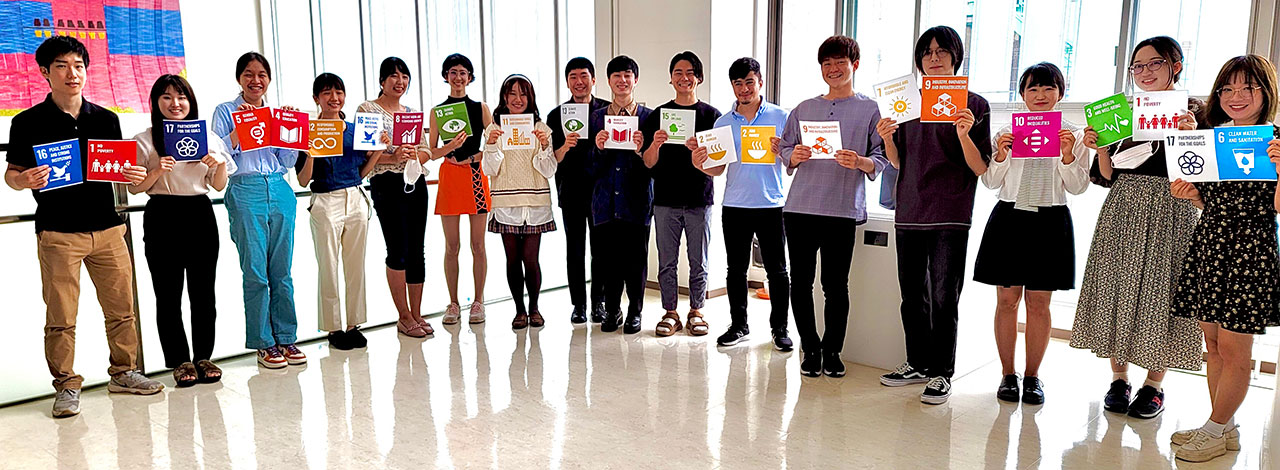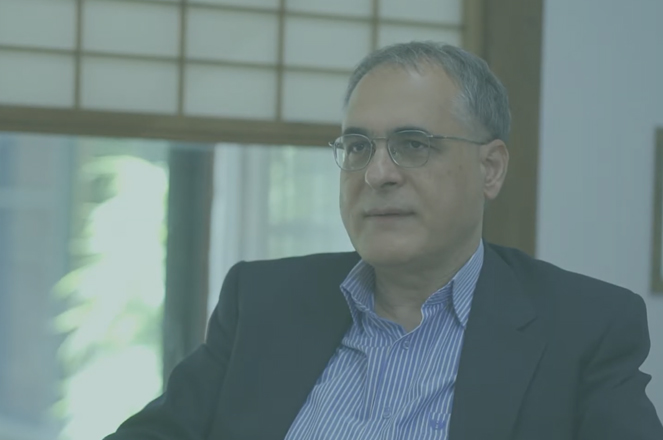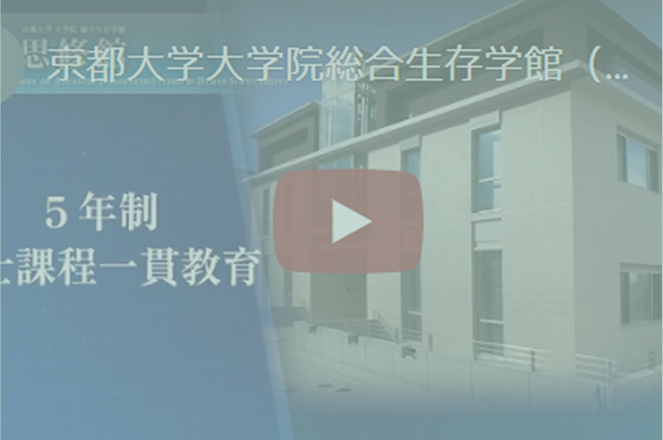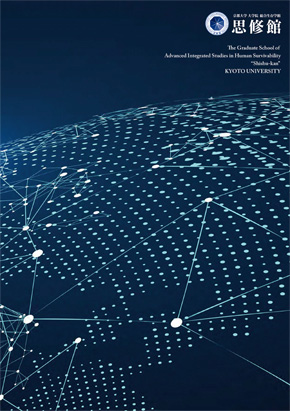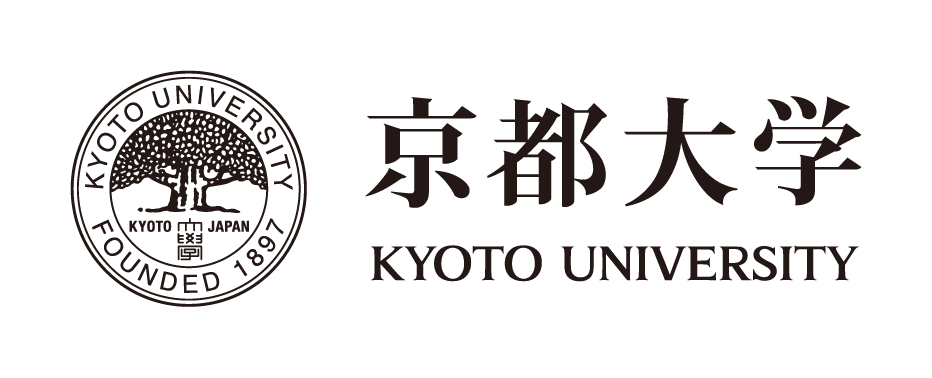Introduction Video
GSAIS requests donations to the Shishukan Fund for the enrichment and development of student education and research, as well as for environmental improvements. Donations will be used to support the future educational activities of the museum and to contribute to society by striving to produce global human resources. We appreciate your support for the activities of the GSAIS.
INFORMATION
- 2024-07-19NEWS
- 2024-07-11EventsNEWS
- 2024-07-03NEWS
- 2024-06-13NEWS
- 2024-06-13NEWS
- 2024-06-06NEWS
- 2024-06-03NEWS
- 2024-05-14NEWS
- 2024-04-26NEWS
- 2024-03-22NEWS
- 2023-10-11AdmissionEventsNEWS
- 2023-10-04AdmissionNEWS
- 2023-06-30AdmissionNEWS
- 2023-06-29AdmissionNEWS
- 2023-04-26AdmissionNEWS
- 2023-04-20AdmissionEventsNEWS
- 2023-10-27NEWSResearch
- 2023-05-24NEWSResearch
- 2023-05-24NEWSResearch
- 2023-05-24NEWSResearch
- 2023-04-11NEWSResearch
- 2023-03-16NEWSResearch
- 2023-03-01NEWSResearch
- 2023-02-24NEWSResearch
- 2023-02-24NEWSResearch
- 2024-07-11EventsNEWS
- 2023-12-19EventsNEWS
- 2023-11-13EventsNEWS
- 2023-11-07EventsNEWS
- 2023-10-11AdmissionEventsNEWS
- 2023-10-04EventsNEWS
- 2023-09-12EventsNEWS
- 2023-08-30EventsNEWS
- 2023-08-30EventsNEWS
- 2023-08-22EventsNEWS
About us
GSAIS is a place of education and research that nurtures elite individuals who will change the world, and is a five-year, integrated doctoral program that aims to foster global human resources. We aim to nurture next-generation leaders who will take on the challenges of climate change, disasters, regional conflicts, energy, food, and water, super-aging society, poverty and inequality, artificial intelligence, and many other issues facing modern society, and implement solutions with a strong will.
To this end, we pursue collective knowledge that integrates and overlooks individual specialized fields such as the humanities, natural sciences, social sciences, and information sciences, and aim to create a new integrated science (unified area science) that transcends the barriers between the humanities and sciences to explore the survival and future of humans, industry, and social systems.
Study in


|
In addition to providing research guidance toward degree completion, the program has a unique curriculum to nurture global leaders with a bird’s eye view. |





Tailored Curriculum
Since the academic backgrounds and basic specialized research fields of the students we accept vary, and their research topics are diverse, we design a curriculum tailored to each student’s individual needs.
Training Facilities
Friendly competition in the dormitory. This environment is made possible by our residential training facilities. Students live together with students from different cultures and fields for five years in this residential training facility, where they study and interact with each other through exchange and dialogue.
Plural Instructor System
To enable students to acquire the basics of various fields and to research problem-solving methodologies from a broader perspective, we have established a multiple supervisor system with the cooperation of full-time faculty members as well as faculty members from other graduate schools and research institutes within the university to support students’ education and research.
In addition, the Comprehensive Ars Vivendi Center has created a number of cross-disciplinary, complex research groups that respond to various social issues. Unlike in a regular graduate school where students belong to a single laboratory, students can belong to multiple research groups according to their own interests and gain a wide range of learning through interaction with various faculty members and students from different fields in addition to their academic advisors.
“Eight Thoughts” to gain knowledge in a wide range of fields
The “Eight Thoughts” are eight fields: Humanities and Philosophy, Economics and Management, Law and Politics, Languages, Science and Engineering, Medicine and Life Sciences, Information and Environment, and the Arts.
“Deliberations.”
This seminar is a first- or second-year course that provides in-depth discussions with top leaders active in various sectors of society. External lecturers from various fields such as international organizations, government agencies, corporations, and NGOs are invited to participate. Students and the lecturers engage in debates and other discussions on a variety of real-world issues to cultivate and deepen their awareness of problems.
“Service Learning.”
During the first and second years, students learn social issues in the local community through hands-on experience with the cooperation of welfare facilities in the neighborhood of Kyoto City and research facilities affiliated with Kyoto University. The program fosters a mindset befitting a leader who understands various standpoints and perspectives as well as cultural and social customs, and who combines social skills, compassion for others, and the ability to take action.
In FY2023, the program is scheduled to be conducted at a long-term care facility in Kyoto city, Ashiu Research Forest Station in Miyama-cho, and Laos.
Musha Shugyo at overseas international organizations, etc.
In the third through fifth years, students engage in practical activities overseas as “Musha Shugyo” (warrior training). The purpose of this program is to determine one’s own position in the global perspective and to cultivate an awareness of international leadership, a sense of responsibility, and the ability to break through in an integrated manner.
The students will be sent to international organizations, companies, research institutes, and other institutions of their choice according to their interests, and with the support of their academic advisors and the Gakkan, they will negotiate for internships. Students are encouraged to obtain their own funding for the internship, but if they are unable to do so, Gakkan will provide assistance with travel and a certain amount of accommodation expenses.
Project-Based Research (PBR)
PBR is the culmination of five years of practical education utilizing research and coursework. Students themselves plan and execute projects to translate their research into social implementation, involving stakeholders from other institutions. The results of the PBR program are included as an important part of the Integrated Ars Vivendi Research Program, which focuses on social implementation, together with the results of the samurai training program. The results will be compiled into a paper.

